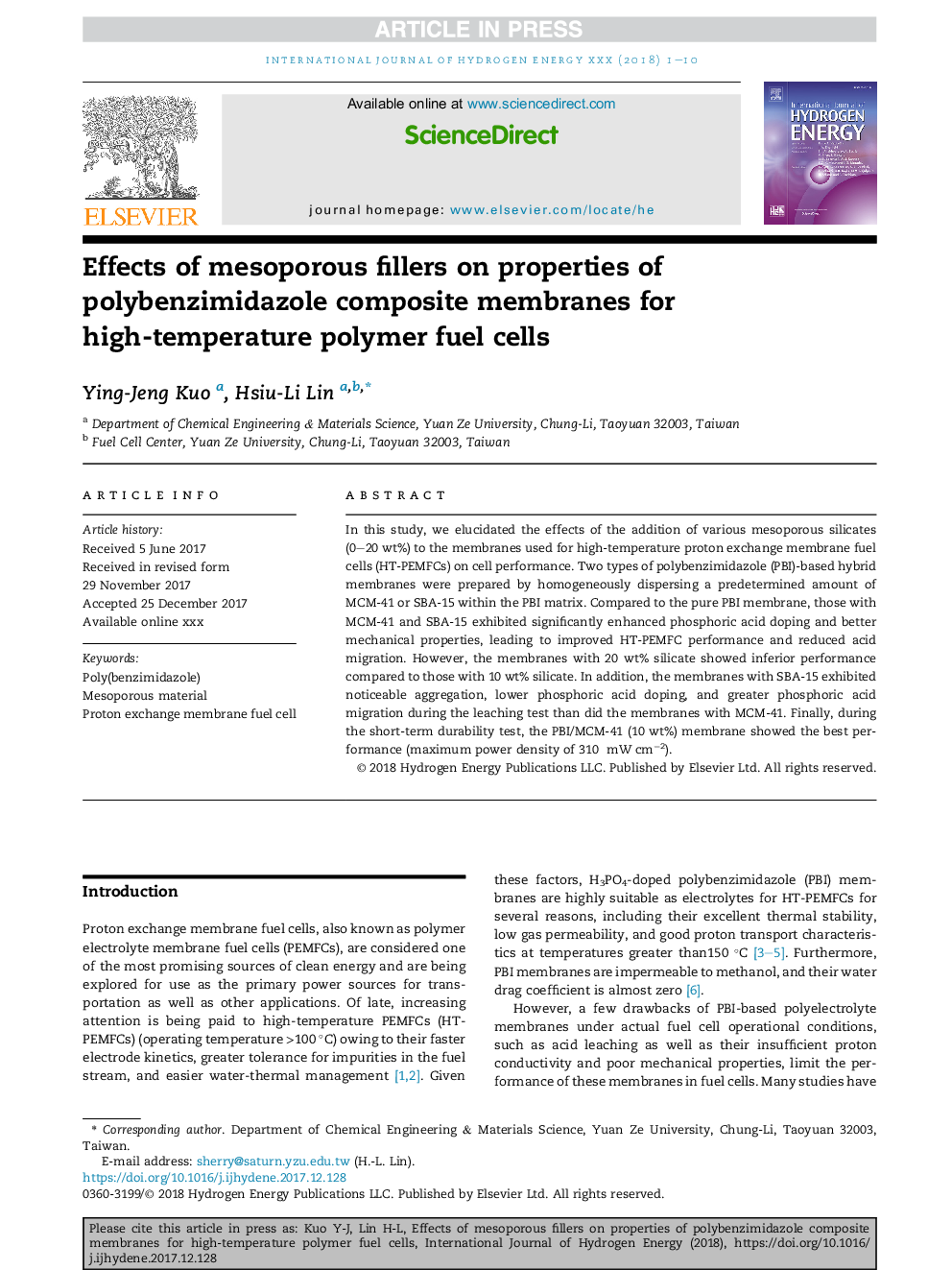| Article ID | Journal | Published Year | Pages | File Type |
|---|---|---|---|---|
| 7707357 | International Journal of Hydrogen Energy | 2018 | 10 Pages |
Abstract
In this study, we elucidated the effects of the addition of various mesoporous silicates (0-20Â wt%) to the membranes used for high-temperature proton exchange membrane fuel cells (HT-PEMFCs) on cell performance. Two types of polybenzimidazole (PBI)-based hybrid membranes were prepared by homogeneously dispersing a predetermined amount of MCM-41 or SBA-15 within the PBI matrix. Compared to the pure PBI membrane, those with MCM-41 and SBA-15 exhibited significantly enhanced phosphoric acid doping and better mechanical properties, leading to improved HT-PEMFC performance and reduced acid migration. However, the membranes with 20Â wt% silicate showed inferior performance compared to those with 10Â wt% silicate. In addition, the membranes with SBA-15 exhibited noticeable aggregation, lower phosphoric acid doping, and greater phosphoric acid migration during the leaching test than did the membranes with MCM-41. Finally, during the short-term durability test, the PBI/MCM-41 (10Â wt%) membrane showed the best performance (maximum power density of 310Â Â mWÂ cmâ2).
Related Topics
Physical Sciences and Engineering
Chemistry
Electrochemistry
Authors
Ying-Jeng Kuo, Hsiu-Li Lin,
